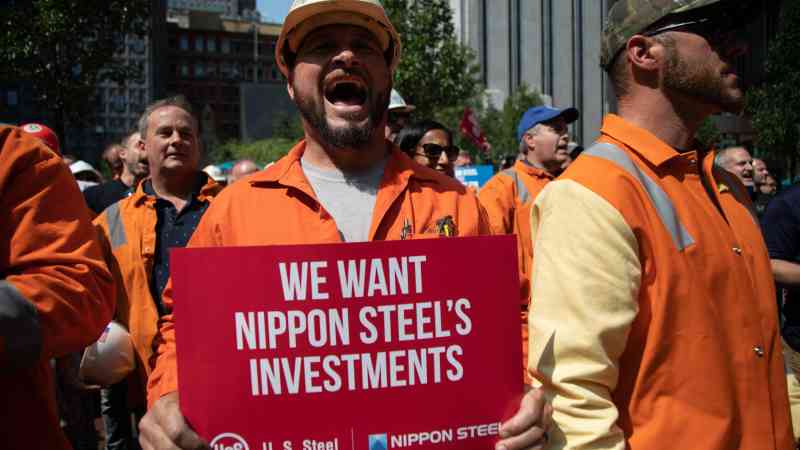What to do if your investment fund manager leaves
When a fund manager who has grown your savings announces that they are to leave, you are left with a dilemma: stick around or don’t.
Fund managers don’t swap jobs too often, but every now and then they’ll be poached by a rival, set up a fund management firm of their own, or retire — and right now this is happening to several high-profile names.
Ben Whitmore is to leave Jupiter Asset Management in October to start his own boutique firm, Brickwood Asset Management. Whitmore is best known for managing Jupiter UK Special Situations, which holds £1.9 billion of investor’s money. Alex Savvides from JO Hambro Capital Management, who managed the JO Hambro UK Dynamic fund, is set to take over at Jupiter in the autumn.
Savvides has said that his style of investing is “not dissimilar to the current investment approach — a highly disciplined and active style focused on undervalued UK companies”.
Elsewhere, the value manager Kevin Murphy has left Schroders after 24 years to join Whitmore at Brickwood Asset Management. Murphy has co-managed the £918 million Schroder Recovery fund since 2006 and the £1.1 billion Schroder Income since 2010. His co-manager Nick Kirrage will take over the whole of Schroders’ global value team.
There are also three veteran fixed-income managers on the move. Jim Leaviss, the manager of the £1.5 billion M&G Global Macro Bond fund and chief investment officer for M&G’s £139 billion fixed income division, announced his departure last month after 27 years at the firm. He has managed the fund since its inception in September 1999, but is now off to study for a master’s degree in art history. M&G has named Andrew Chorlton, the former head of fixed income at Schroders, as Leaviss’s successor.
John Pattullo, who runs the £2.2 billion Janus Henderson Strategic Bond fund, will retire in March 2025. This marks the end of a long-standing double act with fellow co-head of global bonds Jenna Barnard. However, since Barnard will take on the fund single handed after Pattullo goes, investors will have consistency. She has more than 23 years of experience in financial services with 20 years at Janus Henderson.
And finally, Mike Riddell, who runs the £933 million Allianz Strategic Bond fund, has left the business and will join Fidelity by January.
When news breaks of a great fund manager moving, it is important to take your time and assess the situation rather than simply jumping ship. This may not, however, be what loyal investors have done after learning that Peter Rutter, who was a successful manager at Royal London, has left the firm, along with many members of his team, to set up his own company. Since his departure was announced in April, £1.7 billion of saver’s money has been withdrawn from the funds he managed, including Royal London Global Equity Diversified.
While there has been a shift away from the concept of the “star’” fund manager, and a greater emphasis on wider investment teams, it’s clear that investors still believe that key individuals are crucial.
• The six traits that will make you a successful investor• Compare stocks and shares Isas
If you hear that a manager is leaving, the first thing to understand is how they run the fund. Broadly, if a fund manager calls all the shots, it might be more of a blow if they leave. But if the team approach is good, there may be less disruption — as long as how they run the fund doesn’t change too much.
You’ll also want to look at the incoming manager. Is it someone internal or a newbie from outside the firm? If they have already settled in and the new manager appears to be making major portfolio changes, you might want to consider a move. You might also be concerned by lack of a track record, or inexperience.
Investment philosophy is important and that will differ between fund managers, regardless of whether the team remains or not. It’s rare that a manager leaves without there being some change to how the fund is run.
But that’s not necessarily a reason to worry. There could be a good reason for the change, and it could lead to better performance.
Paul Angell from the wealth manager AJ Bell said that Ben Whitmore and Mike Riddell were both the architects of their fund’s investment process and the heads of the investment teams. “In these cases, there is no guarantee the management approach and investment decisions will continue under the new team, as new managers have been brought in.”
• What UK stocks can do for your portfolio• Best investment platforms for beginners
Less change is expected after Kevin Murphy’s exit and John Pattullo’s retirement because both co-headed their teams. Their other halves — Nick Kirrage and Jenna Barnard — will provide investors with a level of continuity.
There will be industry chatter about any changes that could help you decide what to do. It’s likely that your platform will send a notification when a prominent manager is leaving and keep you posted on news of a successor. Industry research firms will hold a view and ratings companies could downgrade the fund if they are not happy with the changes. So use these resources — and perhaps a sprinkling of instinct — to determine whether you stick or twist.






